European court rules teacher’s dismissal over gay blog violated free speech

The European Court of Human Rights rendered a judgement in a case where the Polish authorities fired a school teacher for writing on a blog for adult gay men featuring some sexually explicit content.
In February, in the case of P. v. Poland, the European Court of Human Rights (ECtHR) ruled that Poland violated Article 10 of the European Convention on Human Rights (freedom of expression). The case involved a secondary school teacher who was dismissed for writing an illustrated diary under a pseudonym on a public blog intended for adult gay men, which included some sexually explicit content.
The authorities considered that the applicant’s blog was an affront to the domestic social mores prevailing in Poland because it talked in explicit terms about sexuality. The applicant argued that the authorities had wrongly perceived his blogging activity as attesting to his lack of morals and posing a threat to the ethical education of his students, and that the sanction imposed on him was disproportionate in the circumstances of the case.
ILGA-Europe, together with KPH (Campaign Against Homophobia) and PSAL (the Polish Society of Anti-Discrimination Law) filed a third-party intervention in the case. The intervention informed the European Court about the situation of LGBTI people in Poland and highlighted the States’ obligations under international law and the European Convention on Human Rights (ECHR) framework. It emphasised the States’ obligation to provide effective measures to protect LGBTI persons’ rights to private life and freedom of expression, and to unmask possible discriminatory motives in case of interference with these rights.
While the European Court considered that there was no proof that the applicant’s sexual orientation had been the real reason for his dismissal, it still took into account the fact that the blog depicted same-sex relations when ruling on the breach of his freedom of expression. The Court relied on our intervention, which reminded that the Council of Europe’s Commissioner for Human Rights and the EU Fundamental Rights Agency reported that the prevailing social attitude towards LGBTI persons in Poland was negative. Owing to this, the Court considered important to refer to its previous ruling in the Macatė v Lithuania case, which found a violation of Article 10 as a result of restrictions on the distribution of a book that depicted a same-sex marriage.
The Court considered that the applicant’s dismissal was disproportionate, especially as he did not have any previous record of disciplinary sanctions. It concluded that the Polish authorities did not provide relevant and sufficient reasons for dismissing the applicant from his position as his blogging activity did not threaten the protection of morals of minors in a manner justifying the sanction imposed on him.
According to Annamaria Linczowska, Advocacy and Litigation Officer at Campaign Against Homophobia: “The case itself was a vivid example of discrimination against LGBT+ persons in Poland that time. Using a very serious mechanism – the teacher’s dismissal – the school and later, the commissions, interfered with the teachers’ freedom of speech, his right to be vocal in public about same-sex relationships. The case illustrates the obstacles and discrimination LGBT+ people face in the workplace and in education in Poland. Even though we share the ECtHR’s view regarding the country’s positive obligation to introduce legal tools to ensure respect of private life and freedom of expression, KPH believes that in this case it should have considered also the violation of articles 8 and 14 of the Convention by asserting the fact that applicant’s sexual orientation was a real reason for his dismissal”.
See KPH’s full statement here.
According to Marie-Hélène Ludwig, Senior Strategic Litigation Officer at ILGA-Europe: “We are glad that the Court took into account our joint third-party intervention describing the negative social attitude towards LGBTI persons prevailing in Poland to rule that the domestic authorities breached the applicant’s freedom of expression by dismissing him from his position.”
ILGA-Europe Statement: Turkey is detaining LGBTI+ activists and journalists, and targeting basic rights

The Turkish government has intensified its repression of LGBTI+ human rights defenders, detaining activists and introducing draconian laws that further restrict legal gender recognition, trans healthcare, and free expression. The proposed measures mirror anti-LGBTI+ laws in Russia and Hungary, prompting urgent calls for action.
The last two weeks have seen an increasingly severe crackdown on LGBTI+ human rights defenders and activists in Turkey. This comes during a time when the Turkish government is eroding civic rights and freedoms, including detaining journalists, opposition politicians, and targeting civil society organisations (CSOs) through smear campaigns and further restrictive legislation.
On 18 February, journalist and Editor-in-Chief of KaosGL.org, a news portal dedicated to LGBTI+ issues, Yıldız Tar, was arrested and accused of “membership in a terrorist organisation”. They were arrested alongside a number of journalists, activists (including Erkin – a trans activist), artists and opposition MPs, amounting to 52 arrests that day.
The following week, on 27 February, draft amendments of the Turkish government were leaked to the press which aim to amend the Criminal and Civil Codes to further restrict access to legal gender recognition and trans-specific healthcare, ad criminal sanctions to these as well as criminal sanctions for “any person who publicly encourages, praises or promotes attitudes and behaviors contrary to innate biological sex and public morality” and “persons of the same sex [who] perform an engagement or marriage ceremony”.
The further restrictions to accessing legal gender recognition are:
- Increasing the age of eligibility from 18 to 21.
- Reintroducing mandatory sterilisation (a provision previously annulled by the Constitutional Court and found to violate the European Convention of Human Rights by the European Court of Human Rights (ECtHR)).
- Introducing a lengthier process for approval, requiring an official medical board report to be issued by a “full-fledged training and research hospital designated by the Ministry of Health as a result of four evaluations to be made at least three months apart” (previously it was to be obtained from a training and research hospital), with no maximum duration set, potentially allowing indefinite delays.
Additionally, a new requirement for accessing trans-specific healthcare is introduced, stipulating that it can only be carried out after permission is obtained from one of the above-described hospitals designated by the Ministry of Health.
The criminal sanctions being introduced include sentences of:
- 3-7 years imprisonment and a judicial fine from 1,000-10,000 days for anyone who commits gender reassignment surgery contrary to the new provisions, with the recipient of the surgery facing 1-3 years imprisonment.
- 1-3 years imprisonment for “Any person who publicly encourages, praises or promotes attitudes and behaviors contrary to innate biological sex and public morality”.
- 1.5-4 years imprisonment for “persons of the same sex [who] perform an engagement or marriage ceremony”.
These new legislative restrictions will further restrict the already inaccessible process of legal gender recognition and access to trans-specific healthcare in Turkey (see our previous statement regarding this), making legal and medical transition nearly impossible.
The requirement for mandatory sterilisation and medical certification in order to access legal gender recognition has already been deemed abusive by international human rights bodies. ECtHR case law is clear that such requirements are in violation of the right to privacy and the right to bodily integrity. The Parliamentary Assembly of the Council of Europe (PACE) has called on its member states to “develop quick, transparent and accessible procedures, based on self-determination”. The UN Independent Expert on Protection Against Violence and Discrimination Based on Sexual Orientation and Gender Identity has also recommended that legal gender recognition should be based on self-determination, be a simple administrative process, and not require applicants to fulfil abusive requirements such as surgical interventions or requiring medical certification.
A clear discriminatory attack
The new proposal for criminal sanctions for anyone “who publicly encourages, praises or promotes attitudes and behaviors contrary to innate biological sex and public morality” will impact ordinary people wishing to dress or be called in a way that is different from their biological sex assigned at birth, but also it will also target any debate, awareness raising, or portrayal of topics related to challenging gender binarism, which will impact LGBTI+ people, LGBTI+ CSOs, journalists, and other organisations or people defending freedom of expression.
The criminalisation of symbolic engagement and marriage ceremonies represents a clear discriminatory attack against the LGBTI+ community, who simply wish to honour their partnerships and love in a country where there is no possibility for a legal recognition of same-sex relationships.
The proposals’ provisions are similar to the anti-”LGBTI propaganda” laws seen already in Russia, Hungary and Bulgaria. The European Court of Human Rights has already ruled the Russian law to violate freedom of expression and the prohibition of discrimination, and the EU has launched infringement proceedings against both Hungary and Bulgaria for their laws.
ILGA-Europe calls on the Ministry of Justice to indefinitely withdraw the draft amendments and the Turkish parliament to reject the proposed legislative amendments, which introduce further discrimination against the LGBTI+ community, run contrary to international fundamental rights standards and decisions of Turkey’s Constitutional Court, and which will make the lives of LGBTI+ people in Turkey even more arduous, without providing any additional benefits to the general public.
We call on the Turkish government to immediately release Yıldız Tar and stop crackdowns on legitimate civil society organisations, journalists and others forming part of democratic checks and balances.
The Turkish government should ensure that everyone is equal under the law, and introduce provisions granting equality in line with the jurisprudence of the European Court of Human Rights, including non-abusive and accessible access to legal gender recognition, trans-specific healthcare, legal recognition of partnerships and the right of all to freedom of expression and information.
How you can help
Bring attention to these developments via media and social media:
- Demand the immediate release of Yıldız Tar and Erkin
- Speak out against the crackdown on CSOs, journalists and human rights defenders
- Speak out against the proposed anti-LGBTI+ legislation
Read our press release here.
Statement in solidarity with the LGBTI movement in Kazakhstan

ILGA-Europe stands with Kazakhstan’s LGBTI Community amid Russia-style attempts to criminalise LGBTI people and their human rights
ILGA-Europe express solidarity with the LGBTI community in Kazakhstan as they face legislative proposals which will worsen the already exacerbated situation of the LGBTI community in the country. Two concerning anti-LGBTI legislative initiatives that were voiced last week by two separate groups of members of Kazakhstan’s Parliament threaten the fundamental rights and freedoms of LGBTI individuals in Kazakhstan.
The initiative by the Parliament members Aimagambetov and Ashimzhanov (both from Amanat Party) attempt to introduce a legal prohibition for mass media to write about “non-traditional sexual orientation”. In the same week, Parliament members Zhanbyrshin and Musabaev (also from Amanat party) introduced a draft amendment to include so-called “propaganda of non-traditional sexual relations” in the “discord incitement” provision 174 of the Criminal Code and to prohibit peaceful assemblies on the same ground.
Such initiatives aim to divert attention from pressing issues like natural disasters that the entire northern and western Kazakhstan has been suffering for the past few weeks, with so many villages and towns affected, and over 100,000 people relocated, as well as the nation’s worsening socioeconomic situation and rising public call for the elimination of domestic violence. We call on the Kazakhstan Government to not arbitrarily target the LGBTI community and violating the principles of non-discrimination enshrined in the Constitution of Kazakhstan.
In the past couple of weeks, according to some media reports and from information spreading in messenger chats, the Law Enforcement of Astana have been illegally raiding nightclubs, specifically targeting LGBTI people. This is demonstrative of how such anti-LGBTI discourse and initiatives directly reflect on the safety of LGBTI people.
Kazakhstan’s current legislation does not protect LGBTI people from bias-motivated crimes, places discriminatory and humiliating barriers for legal gender recognition, bans same sex marriage and adoption by LGBTI persons, among many other pressing issues. The existing provisions restricting human rights of LGBTI people and any further attempts to do so contradict Kazakhstan’s international legal commitments, including the implementation of Recommendation No. 139.48 within the Kazakhstan’s previous reporting under Universal Periodic Review cycle, which calls for creating an enabling environment for LGBTI activist groups and human rights defenders.
We are also deeply concerned about the implications of amending Article 14 of the Law on Peaceful Assemblies, which would restrict the right to peaceful assembly for the LGBTI community and other civil society actors. This move further marginalises an already vulnerable community and threatens the democratic principles Kazakhstan aspires to uphold.
ILGA-Europe denounces any attempts to introduce discriminatory legislation that targets the LGBTI community. The LGBTI community in Kazakhstan deserves legal protection and recognition without discrimination.
We urge the Parliament to refrain from any future attempts of adopting anti-LGBTI legislation, and start to engage in meaningful dialogue with civil society and expert organisations to ensure the protection of LGBTI rights. We call on Kazakhstan to uphold its constitutional duty to protect the rights of all citizens, including on the grounds of sexual orientation or gender identity.
We call upon the International Partners of Kazakhstan to join us in reinforcing the dialogue on asking the Government of Kazakhstan to work towards improving the situation with human rights of LGBTI people.
ILGA-Europe stand in solidarity with the LGBTI community in Kazakhstan and reaffirm our commitment to supporting their struggle for equality, dignity, and respect. We encourage individuals and organisations to join us in speaking out against discrimination and advocating for the rights of all LGBTI individuals in Kazakhstan.
BACKGROUND
On February 11, the Ministry of Information of Kazakhstan blocked the selftanu.kz website which aimed at raising awareness of LGBTI teenagers about their rights and providing them with information on healthcare and reproductive rights, among others. The Ministry justified its decision that the information on the website violates the norm of the legislation on preventing dissemination of information that would cause harm to the health and development of children.
On February 23, Kazakhstan’s President Tokaev signed the law preventing LGBTI people from mentoring orphans. When asked how the authorities would identify LGBTI identity of prospective mentors, the Vice-Minister of Education of Kazakhstan Natalia Zhumadildaeva stated that LGBTI people would be prevented from adopting and mentoring orphans according to these provisions. She claimed that the Ministry had developed a special psychological test for such purposes. Again these are non-scientific and inhumane approaches that contradict common sense and go against Kazakhstan’s national and international commitments to uphold human rights and non-discrimination.
On March 5 the authorities of the Almaty Mayor’s office responded to questions why it had prohibited the women’s inclusive rally dedicated to International Women’s Day marked on March 8. Almaty authorities recalled that over the past few years, representatives of feminist movements have already held authorised rallies on March 8. But officials were unhappy that during the protests the organisers and participants “repeatedly deviated from the stated topic.” They claimed that there had been numerous requests from different citizens not to allow the women’s rally, because reportedly “In appeals to them and in messages on social networks, the organisers of the rally, under the guise of the fight for women’s rights, actually promoted non-traditional values that were alien to Kazakh society such as same-sex relationships, marriages, LGBT symbols and others. And, in order to ensure the safety of participants in peaceful assemblies, in order to avoid violation of the rights of city residents and other persons, and to prevent violation of public safety by the Almaty authorities, a decision was made not to approve the rally of feminist organisations”.
On April 5, within the discussions of amendments to the Law on Mass Media, the first initiative was put forward by Parliament Members Askhat Aimagambetov and Zhanarbek Ashimzhanov (both from Amanat Party) to include provisions that would ban Mass Media from mentioning anything about LGBTI. This was followed by another more restrictive initiative on April 10 by Parliament Members Edil Zhambyrshin and Samat Musabaev (also from Amanat Party). In particular, they proposed an amendment to Article 174 of the Criminal Code (“Inciting social, national, tribal, racial, class or religious hatred”) to include criminal charges for those who break the law and publicly mention about LGBTI. Although, both provisions did not make it to the second reading of the bill and when it was passed to the upper Chamber of the Parliament. However, LGBTI activists fear these amendments may resurface as the initiators made it clear they would not withdraw their attempts to follow through.
For the past couple of weeks, according to media reports and information shared on messenger chats, law enforcement in Astana has been illegally raiding night clubs and specifically targeting LGBTI people under the false pretence of preventing illegal proliferation of drugs. Reportedly the police are also raiding private parties organised in apartments and houses, as well as nightclubs that are not specifically LGBTI-themed.
Statement: Kyrgyzstan targets LGBTI communities in a new law
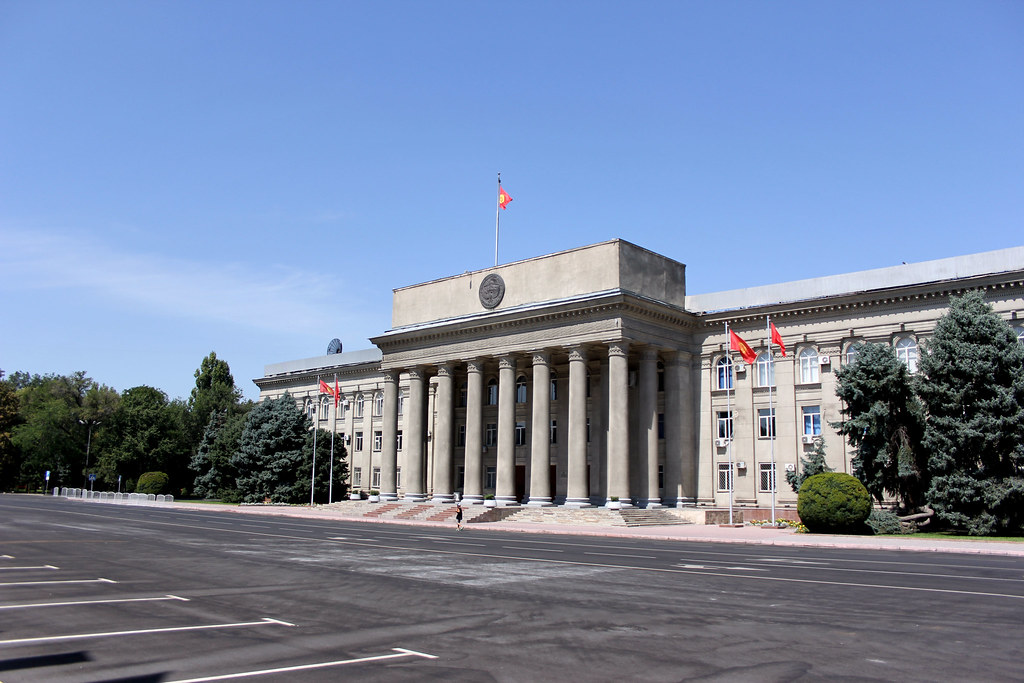
ILGA-Europe expresses solidarity and stands with LGBTI organisations and communities in Kyrgyzstan as the country’s President signed into law a discriminatory provision banning dissemination of information about LGBTI people, rights, and identities among minors.
We firmly assert that this specific provision in the new legislation does not protect anybody; instead, it deprives LGBTI children from access to services and support that they need to thrive and puts them at risk of harassment, violence and a generally hostile environment. The damaging effects of similar Russian legislation on the lives of children, as well as on the lived realities of LGBTI people in general, are well-documented.
Information about LGBTI people and identities is listed in the new law on a par with violent or pornographic content, and the adoption and discussion of this law unfolded in parallel with smear campaigns against LGBTI organisations, activists, and communities in Kyrgyzstan. This confirms that the new law is a deliberate attempt to stigmatise LGBTI people and to fuse LGBTI people and identities with abuse of children and exposing children to harm.
Finally, just like previously in Russia, Poland and Hungary, this legislation comes along with other anti-democratic developments, such as the draft law on media and the attempts to outlaw foreign funding, and is a precursor of other attempts to limit the space of independent civil society and media. It sounds an alarm for the entire civil society in Kyrgyzstan and its partner and ally organisations and demands a united front across different parts of the country’s civil society as well as international supporters, funders, and allies.
Together with our members and partners, ILGA-Europe will continue to advocate for the rights of LGBTI people in Kyrgyzstan and will be rallying support and solidarity for LGBTI organisations and their allies in the country.
Now that LGBTI organisations in Kyrgyzstan need to take their time to assess the situation and plan ahead, we encourage all supporters and allies to not rush to action but follow the lead of the LGBTI organisations in the country. It is also a moment for all of us to consider where our positions and resources could be most helpful, immediately and in the long term. Be it documenting the effects of the law on the rights and freedoms of LGBTI people and their allies, advocating for its repeal, offering security support, building solidarity across the civil society, or otherwise supporting different communities to counter the gaps and risks created by this law.
Background
On 15 August, Kyrgyzstan enacted a new law that aims to restrict freedom of expression and access to information about LGBTI people, identities, rights, and lives.
Formally, the law seeks to ban dissemination of harmful information among minors, while labelling as harmful also information that “denounces family and traditional societal values, promotes non-traditional sexual relations and initiates disrespect towards parents or other family members.” This language echoes the ‘anti-propaganda’ laws that are in place in Russia and Hungary.
The law comes into force on 30 August, 15 days after its publication.
The official title of the law is “On introducing amendments to several legal acts of the Kyrgyz Republic”, and it amends the Code of Misdemeanors, the law “On measures to prevent harm to children’s health, physical, intellectual, mental, spiritual and moral development in the Kyrgyz Republic”, and the law “On Mass Media”.
Dissemination of “harmful information” will lead to fines of up to 5,000 soms (around 52 euro) for individuals, and up to 25,000 soms (around 260 euro) for legal entities.
This has been the third attempt to adopt a so-called ‘anti-propaganda’ law in Kyrgyzstan. The first two attempts in 2014 and 2015 did not succeed in writing discrimination against LGBTI people into law.
Attempts to target LGBTI people and the civil society in general are seen by activists in the country as attempts to distract public attention from major issues in Kyrgyzstan such as increasing electricity prices, shortage of irrigational water supplies due to drought across the country, and many other socio-economic problems that the Government of Kyrgyzstan has been struggling to address.
European Court rules against Lithuania labelling LGBTI-inclusive fairytale book harmful to children
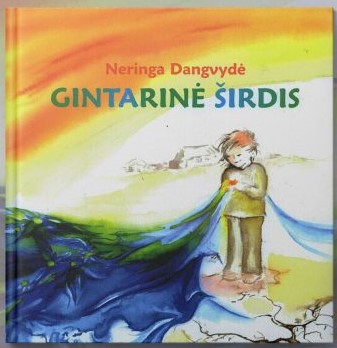
Today, the European Court of Human Rights found a violation of Article 10 (freedom of expression) on the account that labelling a book of fairy tales as harmful to children solely because of LGBTI content breached the European Convention.
Published in 2013 by the Lithuanian University of Educational Sciences and written by the late lesbian writer, Neringa Dangvyde Macate, the book was entitled ‘Amber Heart’ (‘Gintarinė širdis’), and contained fairy tales aimed at nine-ten-year olds, with partial funding from the Ministry of Culture. Adapted from traditional fairy tales, ‘Amber Heart’ included characters from different ethnic groups or with intellectual disabilities and addressed issues such as stigmatisation, bullying, divorced families and emigration. Two of the six fairy tales in the book had story lines about relationships and marriages between persons of the same sex.
On the book’s publication, eight members of the Lithuanian Parliament sent a letter to the University, relaying to it concerns expressed by associations representing families about literature which “sought to instil in children the idea that marriage between persons of the same sex was a welcome phenomenon”.
The Inspectorate concluded that the two fairy tales which depicted same-sex couples did not comply with a provision in Lithuania’s ‘Minors Protection Act’, stating that any information which “expresses contempt for family values” or “encourages a different concept of marriage and creation of family than the one enshrined in the Constitution or the Civil Code” is considered as having a negative effect on minors. The Inspectorate recommended that the book be labelled with a warning that it might be harmful to children under 14 years of age.
The University’s publishing house suspended distribution of the book in March 2014. A year later distribution was resumed, with the book bearing a warning label, in line with the Inspectorate’s recommendation.
Macate lodged civil proceedings against the University, arguing that depiction of same-sex relationships could not be considered harmful for children of any age, but in 2019 the courts ultimately endorsed the measures taken against the book and dismissed her claim. In particular, the Vilnius Regional Court found that certain passages were too sexually explicit and that the way in which the fairy tales depicted a new family model raised the question of whether the applicant herself had sought to discriminate against those who held values different from her own.
In 2020, Neringa Dangvyde Macate passed away and her mother continued proceedings on her behalf, taking the case to the European Court. ILGA-Europe had intervened in this case jointly with Article 19 and Professor David Kaye (former UN Special Rapporteur on Freedom of Expression). Read more about our intervention here.
In today’s Grand Chamber judgment, the European Court held, unanimously, that there had been: a violation of Article 10 (freedom of expression) of the European Convention on Human Rights. The Court found that the measures against the applicant’s book had intended to limit children’s access to information depicting same-sex relationships as essentially equivalent to different-sex relationships.
In particular, it could not see how, according to the national courts and the Government, certain passages – a princess and a shoemaker’s daughter sleeping in one another’s arms after their wedding – had been sexually explicit. Nor was it convinced by the Government’s argument that the book had promoted same-sex families over others. To the contrary, the fairy tales had advocated respect for and acceptance of all members of society in a fundamental aspect of their lives, namely a committed relationship.
As a result, it concluded that restricting children’s access to such information had not pursued any aims that it could accept as legitimate.
Welcoming the judgement, ILGA-Europe’s Head of Litigation, Arpi Avetisyan said, “The Court’s message is clear: Protection of children cannot be used as an excuse for censoring information about LGBTI rights, both on the part of the authors for promoting diversity and equality, and for children to learn about acceptance of all members of the society on an equal footing.
“This case also sends another important message, which is that all families are equal. In the Court’s own words: Promoting one type of family at the expense of another is never acceptable under the [European] Convention.”
The Court ordered Lithuania to pay 17,000 Euro to cover non-pecuniary damages and litigation costs. The funds are to be paid to the author’s mother.
Macaté v. Lithuania

Freedom of expression, warning labels restricting artistic expression.
Submitted jointly by ILGA-Europe, Professor David Kaye, International Justice Clinic, University of California, Irvine, School of Law and ARTICLE 19: Global Campaign for Free Expression.
EU Holds Firm in Face of Hungary’s Blatant Lies Surrounding Anti-LGBTI Law
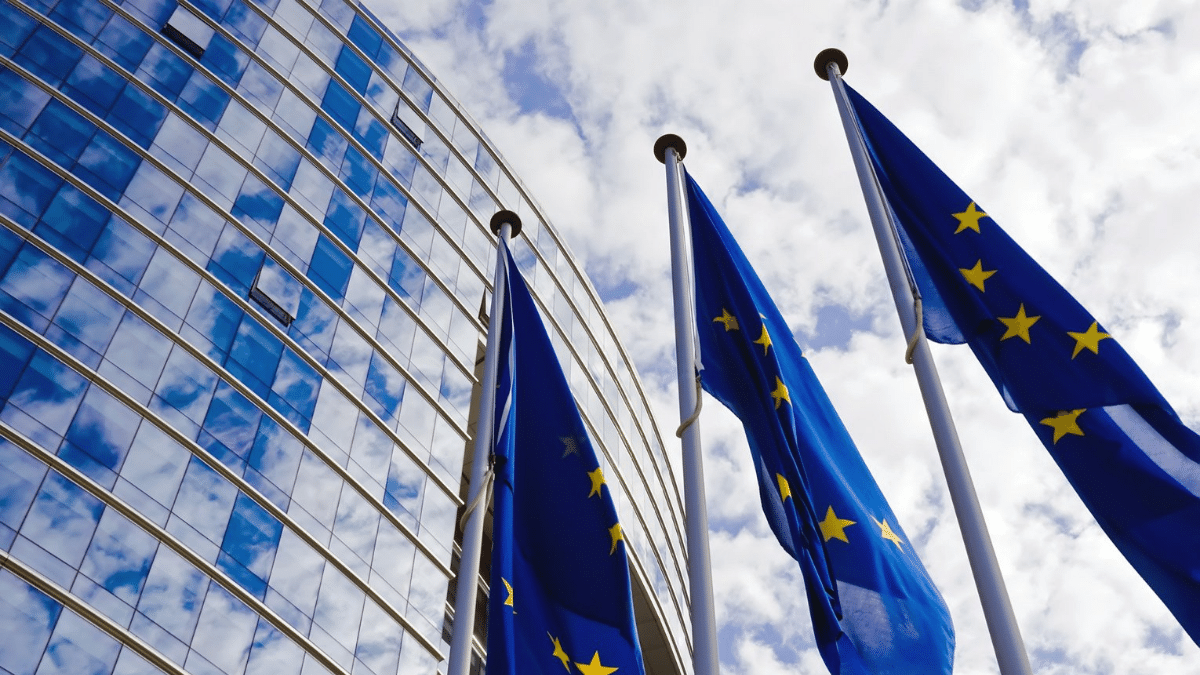
As the European Commission takes the second step in its infringement procedure against Hungary, Europe’s leading LGBTI organisation welcomes its clarified commitment to the equal human rights of the people of Hungary and all other EU member states.
Today, 2 December 2021, the European Commission (EC) began the second phase of its infringement procedure against EU member state, Hungary, due to discriminatory amendments adopted on 23 June in the country, which ban the “portrayal and the promotion of gender identity different from sex at birth, the change of sex and homosexuality”.
On 15 July 2021, the European Commission formally notified Hungary of the beginning of infringement proceedings regarding the amendments. The Hungarian Prime Minister, Viktor Orbán responded by accusing the Commission of “legalised hooliganism” and announcing plans to call a referendum on the amendments, falsely insisting that the infringement procedures specifically seek to interfere in the Hungarian education system. Since then a number of Hungarian government officials have similarly sought to mislead the Hungarian and European public in regard to the content of the infringement procedures.
Today the Commission said that it finds Hungary’s official response to its notification insufficient, and it has therefore started the second phase of the infringement process by sending Hungary a letter known as a “reasoned opinion”, outlining the parts of the new Hungarian law that are breaching EU law, and demanding that these are changed. The EC also identified that even more EU laws are being breached by the amendment, and contrary to claims from the Hungarian government, it did not mention any educational directives in its reasoned opinion.
Instead it clarified that it is specifically concerned with breaches to fundamental EU law when it comes to the freedom to provide services and the free movement of goods. Hungary, the Commission says, has not shown how restrictions in its legislative amendments are duly justified, non-discriminatory, and proportionate.
In addition, the EU clarified breaches of the Audiovisual Media Services Directive and the e-commerce Directive, citing restrictions in the amendments regarding audiovisual media content, including discrimination based on sexual orientation.
The Commission also deems that the Hungarian amendments violate human dignity, freedom of expression and information, the right to respect of private life as well as the right to non-discrimination as enshrined in Articles 1, 7, 11 and 21 of the EU Charter of Fundamental Rights, and due to all of this, the amendments violate Article 2 of the Treaties of the European Union.
According to Katrin Hugendubel, Advocacy Director with Europe’s leading LGBTI organisation, ILGA-Europe: “The Hungarian government keeps twisting the facts and stating that it is protecting children and acting on the will of its people with these amendments. Both statements are patently false. The amendments are an attack on children’s rights as well as the rights of LGBTI people. Contrary to the amendments reflecting the will of the people, support for LGBTI equality is growing in Hungary.
“With these amendments and his referendum, Orbán is running a campaign in advance of elections next year, hoping to distract from the massive problems his government is responsible for by scapegoating the LGBTI community. The EC is right to hold the Hungarian government accountable to the Treaties, and should not hesitate to see this through, including by bringing Hungary in front of the Court of Justice of the European Union (CJEU).”
Hungary now has two months to remedy the breaches identified by the Commission. If they do not amend the law to remove the breaching anti-LGBTI provisions, then the Commission will refer the case to the CJEU.
For further comment, contact: Ana Muñoz Padrós, ILGA-Europe: ana@ilga-europe.org, +32 493 35 60 55
The frontline: Queer and the Media: with Ben Hunte
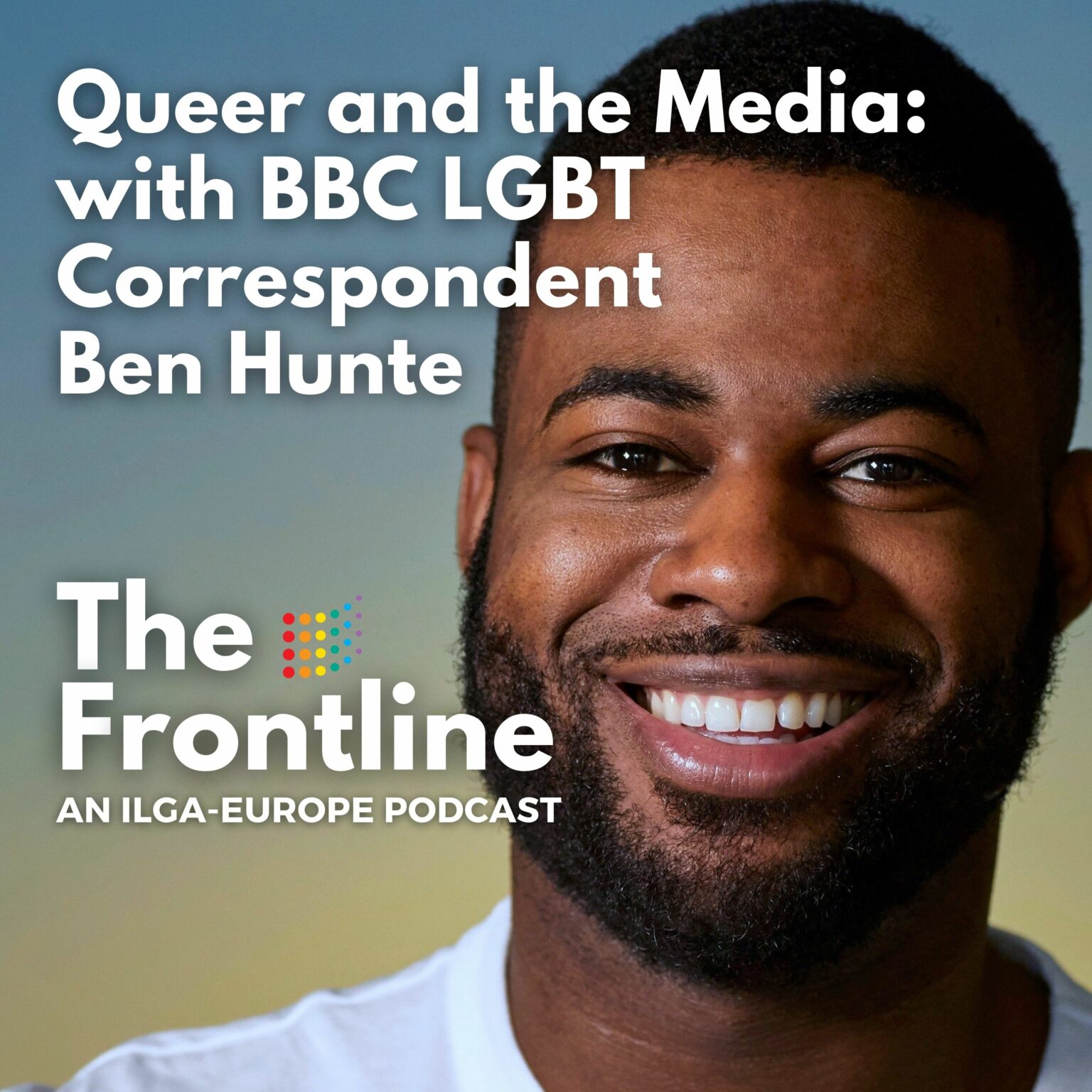
Ben Hunt’s first year on the job as BBC LGBT Correspondent* has been an unprecedented one, with the rise of anti-LGBT hatred in Europe, marked by stark developments in Poland and Hungary.
In this episode of The Frontline, Ben sits down with us to talk about the relationship between the media and LGBTI issues, why some stories get all the attention to the detriment of others, the rise of anti-trans voices in newspapers and broadcasting, and ways we might get the real diversity of LGBTI stories picked up.
Listen below or click here to listen and subscribe to The Frontline on your favourite podcast platform.
* Since the publication of this podcast, Ben Hunte has resigned from the BBC to join Vice News
How the new anti-LGBTI legislation in Hungary actually violates children’s rights, instead of protecting them

The Hungarian parliament has recently passed an anti-LGBTI bill censoring communication about LGBTI people to under-18s. This means that LGBTI-related content will be banned in schools and children’s media, and from public spaces. Viktor Orban’s government claims this bill will protect children, but the truth is that it’s an attack on children’s rights as well as the rights of LGBTI people. Here’s why.
Since June 15 2021, when Hungary adopted new legislation censoring communication about LGBTI people to minors, strong reactions and support for LGBTI communities have come from all around the world. The President of the European Commission Ursula von der Leyen called Hungary’s new bill “a shame” and promised punitive action. European Commissioners for Justice and the Internal Market sent a letter to the Hungarian Justice Minister, raising concerns over the potential breach of the EU’s Charter of Fundamental Rights.
While the statements by heads of states and Ursula von der Leyen, as well as the official letter by the European Commission are important first steps, it’s important for them to translate in political action of real change. We have analysed the impact of the Hungarian amendments in the frame of children’s rights and there’s one clear conclusion:
International law on children’s rights is clear: these amendments are in violation of Hungarian commitments to the international law framework, and must be repealed.
Five ways Hungary’s bill violates children rights
1. In the context of international law, children are guaranteed education programmes that promote the development of their health, including on issues related to sexuality as well as access to information regarding their sexual development. The Committee on the Rights of the Child has repeatedly asserted the rights of children to comprehensive sexuality education, including on the full diversity of sexual orientations, gender identities, and sex characteristics. For example, in 2003, the Committee noted that:
“State obligation to realise the right to life, survival and development also highlights the need to give careful attention to sexuality as well as to the behaviours and lifestyles of children, even if they do not conform with what society determines to be acceptable under prevailing cultural norms for a particular age group.”
This view was reiterated by the U.N. Special Rapporteur on the Right to Education Vernor Mufioz in 2010.
2. In 2009, the Committee on the Rights of the Child further noted, in the context of the right to be heard, that:
“Freedom of expression relates to the right to hold and express opinions, and to seek and receive information through any media. It asserts the right of the child not to be restricted by the State party in the opinions she or he holds or expresses. As such, the obligation it imposes on States parties is to refrain from interference in the expression of those views, or in access to information, while protecting the right of access to means of communication and public dialogue.”
3. In 2007, the European Committee on Social Rights heard a complaint against Croatia regarding teaching of sexuality education which described homosexuality as ““against the nature of sexual act[s]”. In its judgment, the ECSR noted:
“In the context of the right to protection of health through the provision of sexual and reproductive health education as set out in Article 11§2, this positive obligation extends to ensuring that educational materials do not reinforce demeaning stereotypes and perpetuate forms of prejudice which contribute to the social exclusion, embedded discrimination and denial of human dignity often experienced by historically marginalised groups such as persons of non-heterosexual orientation. The reproduction of such state-sanctioned material in educational materials not alone has a discriminatory and demeaning impact upon persons of non-heterosexual orientation throughout Croatian society, but also presents a distorted picture of human sexuality to the children exposed to this material. By permitting sexual and reproductive health education to become a tool for reinforcing demeaning stereotypes, the authorities have failed to discharge their positive obligation not to discriminate in the provision of such education, and have also failed to take steps to ensure the provision of objective and non-exclusionary health education.”
4. When similar legislation was adopted in Russia in 2013, the so-called ‘anti-propaganda law’, the Venice Commission adopted an opinion on its legality, noting that “homosexuality as a variation of sexual orientation, is protected under the ECHR and as such, cannot be deemed contrary to morals by public authorities, in the sense of Article 10 § 2 of The ECHR.”
5. The European Court of Human Rights ruled in 2017 that the Russian “anti-propaganda” law (which the Hungarian amendments closely resemble), noting that the law:
“…is an example of such predisposed bias, unambiguously highlighted by its domestic interpretation and enforcement, and embodied in formulas such as “to create a distorted image of the social equivalence of traditional and non-traditional sexual relationships” (see paragraph 34 above) and references to the potential dangers of “creating a distorted impression of the social equivalence of traditional and non-traditional marital relations(…) Even more unacceptable are the attempts to draw parallels between homosexuality and paedophilia.”
6. Dunja Mijatovi?, Council of Europe Commissioner for Human Rights, in her human rights comment on comprehensive sexuality education, says:
“By providing factual, non-stigmatising information on sexual orientation and gender identity as one aspect of human development, comprehensive sexuality education can help save lives. It can contribute to combating homophobia and transphobia, at school and beyond, and to creating a safer and more inclusive learning environment for all.”
Based on this statement, Commissioner Mijatovi? rapidly condemned the current Hungarian legislation.
LGBTI activists create a Twitter storm for EU infringement procedures against Poland over so called ‘LGBT-free Zones’
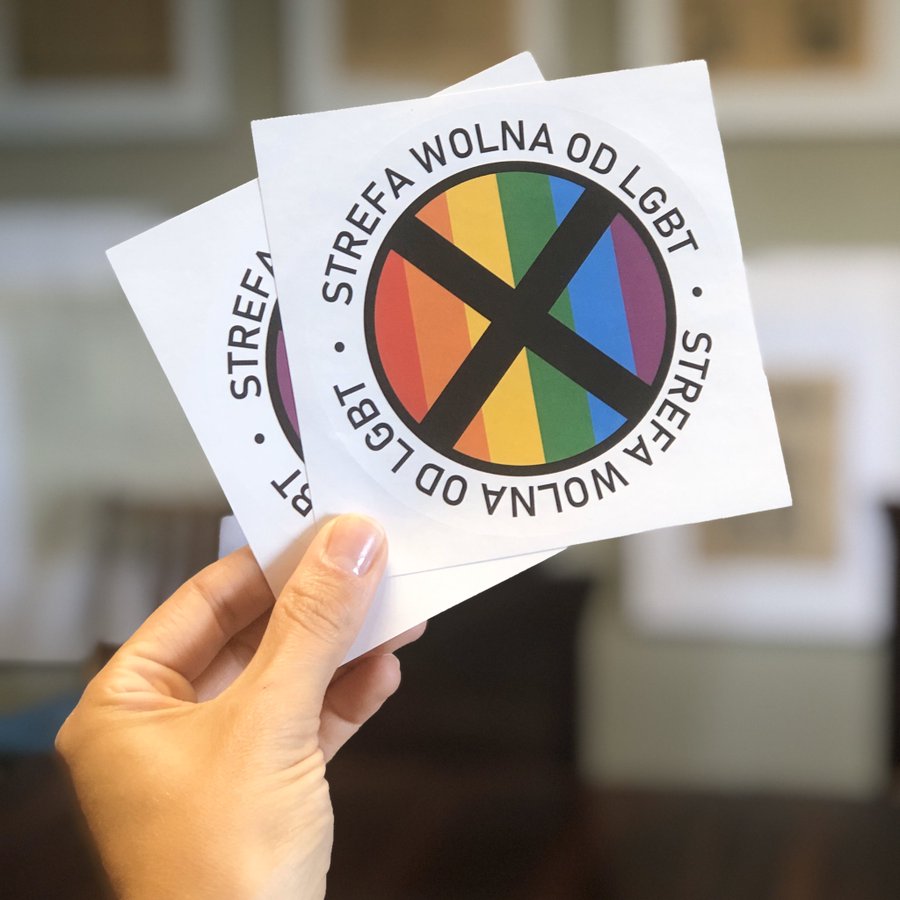
ILGA-Europe launched an-hour long Twitter Storm demonstration on February 11, calling on the European Commission to take infringement procedures against Poland, making the Polish-based hashtag #infringementNOW trend
An online action, created by Brussels-based ILGA-Europe in association with the Polish LGBTI rights organisation Campaign Against Homophobia (KPH), has been supported by many politicians, MEPs, diplomats, political party groups, NGOs and human rights defenders from all around the EU and the world.
Other words like #Polish and #Poland were also among the trending topics between 9 and 10 AM in Belgium, which coincided with the European Parliament’s plenary sessions. The hashtag #infringementNOW had more than 2,000 mentions in an hour-long Twitter demonstration.
The action was created to support to a 30-day long campaign by KPH, which has been calling on the EU to initiate an infringement procedure against Poland for violating EU directives with so-called ‘Family Charters’ and ‘LGBT Free Zones’, which over 100 Polish local governments have adopted over the last two years.
https://cdn.embedly.com/widgets/media.html?type=text%2Fhtml&key=a19fcc184b9711e1b4764040d3dc5c07&schema=twitter&url=https%3A//twitter.com/ILGAEurope/status/1359777741055393792&image=
Last September, ILGA-Europe, together with KPH and Poland’s Fundacja Równości (The Equality Foundation), submitted a legal complaint to the European Commission about so-called ‘Family Charters’ and ‘LGBT Free Zones’. The complaint sets out how these declarations introduce discrimination against LGBTI people and thus breach the European Council Directive (2000/78/EC), establishing a general framework for equal treatment in employment and occupation, as well as the Charter of Fundamental Rights Article 15 on Freedom to choose an occupation and right to engage in work, and Article 21 on non-discrimination.
The campaign is not over!
Until the European Commission takes infringement procedures against Poland, let’s keep calling on it to take action. Tweet this message, and ask your followers and other stakeholders to tweet it also:
Time 4 #infringementnow against Poland 4 violating fundamental rights of EU citizens & disregarding EU treaties with so-called ‘LGBT-Free Zones’ & ‘Family Charters’. EC President @vonderleyen, what’s holding the @EU_Commission back from taking action? @helenadalli @VeraJourova
You can find an image to include with your tweet here.
For inspiration, take a look at what happened during our Twitter-storm demonstration:
Many activists tweeted #infringementnow!
Human Rights organisations also joined the call
Members of the European Parliament called the European Commission to take action.
Poland: All charges against LGBTI rights defenders charged for peaceful activism must be dropped, say Human Rights NGOs
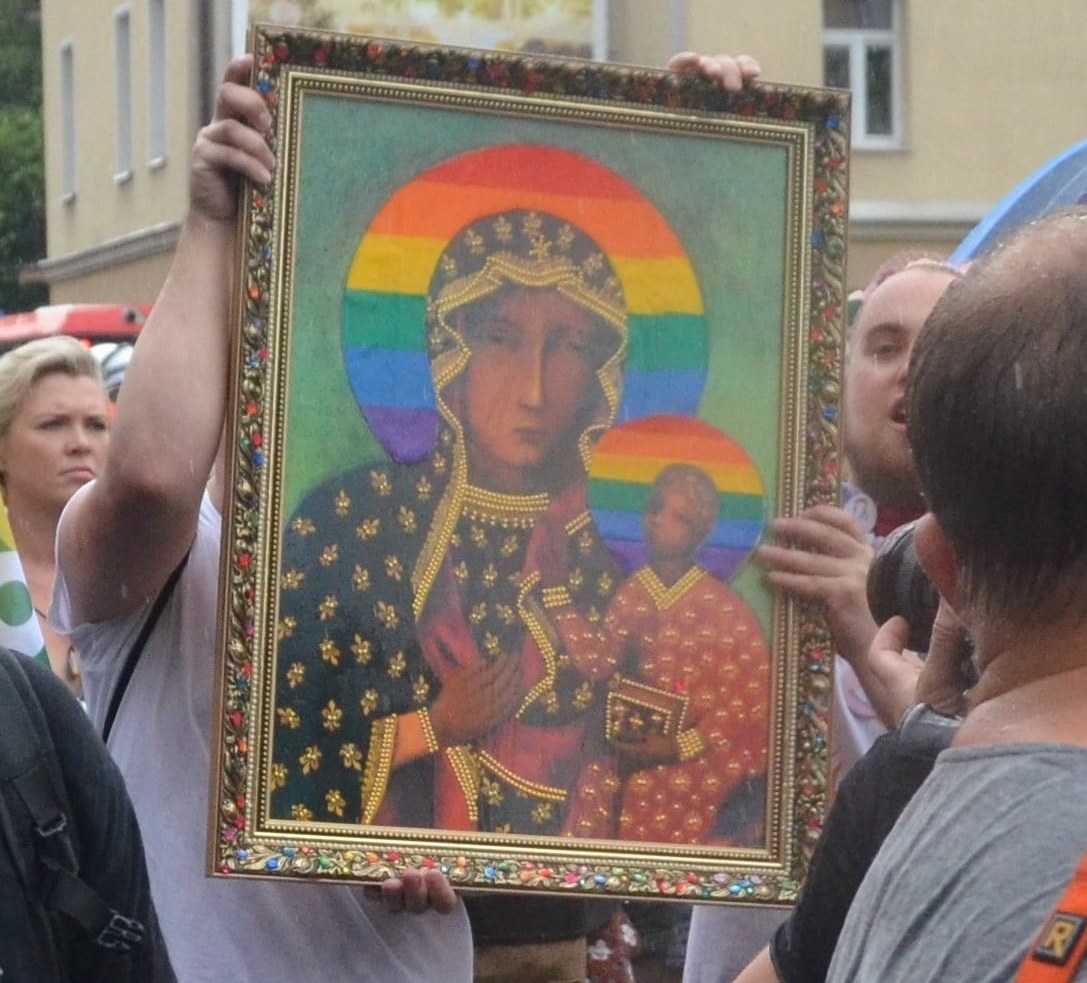
The trial of three women accused of “offending religious beliefs” will take place, tomorrow on January 13 in Plock, Poland. The activists face up to two years in prison for disseminating posters of the Virgin Mary with a rainbow halo symbolic of the LGBTI flag. Six international human rights NGOs are calling for all charges to be dropped, and for the Polish authorities to amend their legislation and bring it in line with international and regional human rights standards.
After a first postponement in November, the trial against El?bieta, Anna and Joanna (whose surnames are not being used to protect their privacy) will take place this Wednesday, January 13. Under article 196 of the Polish Criminal Code (C.C.), the women are accused of having ‘publicly insulted an object of religious worship in the form of this image which offended the religious feelings of others’ in relation to their display of posters of the Virgin Mary with a rainbow halo on 29 April 2019. If found guilty, the activists face up to two years in prison.
The authorities arrested and detained El?bieta in 2019 after she took a trip abroad with Amnesty International. The authorities opened an initial investigation against her in May 2019, and in July 2020 they officially charged the three activists.
Six non-governmental human rights organisations: ILGA-Europe, Amnesty International, Campaign Against Homophobia, Freemuse, Front Line Defenders, and Human Rights Watch call on the Polish Prosecutor General to drop the charges and ensure that the three women are allowed to carry out their human rights work without harassment and reprisals by the authorities.
RESTRICTING THE RIGHT TO FREEDOM OF EXPRESSION
Creating or distributing posters such as the ones depicting the Virgin Mary with a rainbow halo should not be a criminal offence and is protected under the right to freedom of expression.
In its current formulation, article 196 of the Polish C.C. imposes undue restrictions on the right to freedom of expression by providing overly broad discretion to the authorities to prosecute and criminalise individuals for expression that must be protected. This is incompatible with Poland’s international and regional human rights obligations.
Poland is bound by the International Covenant on Civil and Political Rights (ICCPR), the European Convention on Human Rights as well as the Charter of Fundamental Rights of the EU to respect, protect and fulfill the right to freedom of expression.
Furthermore, in 2013, the Special Rapporteur in the field of cultural rights noted that “Restrictions on artistic freedoms based on insulting religious feelings… are incompatible with [ICCPR]”. In 2019, this was again highlighted by the Special Rapporteur on freedom of opinion and expression, who stressed that criminalising expression that insults religious feeling limits “debate over religious ideas and… such laws [enable] governments to show preference for the ideas of one religion over those of other religions, beliefs or non-belief systems”.
Freemuse is particularly concerned about the policing of artistic and creative content by the authorities in Poland and regard this court case as an unlawful attack on freedom of artistic expression.
Amnesty International has previously called on the Polish authorities to repeal or amend legal provisions, such as article 196 of the Criminal Code, which criminalise statements protected by the right to freedom of expression. Many other national and international human rights organisations have criticised provisions of the Polish Criminal Code, including article 196, as problematic because they constitute restrictions on the right to freedom of expression not permissible under international human rights law.
According to international standards, restrictions on the right to freedom of expression must be provided by law and formulated with sufficient precision to enable an individual to regulate his or her conduct accordingly (Human Rights Committee, General Comment 34 on Freedom of Expression, para. 25). The current formulation of article 196 is not sufficiently precise, leaves space for arbitrary interpretation and allows authorities to arrest, detain, and prosecute people simply for expressing views that may be perceived by others as offensive.
The six organisations state that everyone has a right to express themselves safely and without fear of reprisals, and that the right to freedom of expression is protected, even if some people might find the expression to be deeply offensive (Human Rights Committee, General Comment 34 on Freedom of Expression, para. 11). In the words of the European Court of Human Rights the right to freedom of expression “is applicable not only to information or ideas that are favourably received or regarded as inoffensive or as a matter of indifference, but also to those that offend, shock or disturb the state or any sector of the population”.
According to ILGA-Europe’s Advoacy Director, Katrin Hugendubel: “The case against El?bieta, Anna and Joanna is an example of the repeated harassment activists and human rights defenders face simply for carrying out peaceful activism in Poland, which Polish and international human rights organisations have documented and denounced at length in the last number of years.
“El?bieta, Anna and Joanna stood against hate and discrimination and for years they have been fighting for a just and equal Poland. They deserve to be praised and not taken to court for their activism.”
BACKGROUND
To date, around 140,000 people have joined an international campaign urging the Prosecutor General to drop the unfounded charges against the three women human rights defenders. The campaign is available at https://www.amnesty.org/en/get-involved/take-action/poland-activist-elzbieta-podlesna/.
Amnesty International, Campaign Against Homophobia, Freemuse, Front Line Defenders, Human Rights Watch and ILGA-Europe, remain committed to supporting the three women human rights defenders and campaigning for justice.
El?bieta is one of the 14 women human rights defenders who were beaten and targeted for standing up to hate in Poland during the Independence March in 2018. See their story at https://www.amnesty.org/en/latest/campaigns/2019/04/14-women-blog/.
At the time of her arrest in May 2019, El?bieta had just returned from a trip to Belgium and the Netherlands with Amnesty International, where she participated in several events and advocacy meetings with activists and supporters to raise awareness about the situations of peaceful protesters and the crackdown they are facing in Poland.
To see a timeline on anti-LGBTI hate in Poland, click here.* Article 196 of the Criminal Code makes anyone found guilty of intentionally offending religious feelings through public calumny of an object or place of worship liable to a fine, a restriction of liberty, or to imprisonment for a maximum of two years.
Poland: Drop charges against women rights defenders

NGOs call to drop unfounded charges for peaceful activism.
Unfounded charges of “offending religious beliefs” are being brought against three women human rights defenders in Poland for simply exercising their right to freedom of expression, a coalition of six nongovernmental groups said today. The first hearing in their case is scheduled for November 4, 2020 in the town of Plock.
The Prosecutor General should drop the charges – and ensure that the three women are allowed to carry out their human rights work without harassment and reprisals by the authorities. The groups are Amnesty International, Campaign Against Homophobia, Freemuse, Front Line Defenders, Human Rights Watch and ILGA-Europe.
The Polish authorities should amend their legislation and bring it in line with international and regional human rights standards and abstain from using it against activists to unduly curtail their right to freedom of expression.
The case against the three women human rights defenders
The three human rights defenders, El?bieta, Anna and Joanna – whose surnames are not being used to protect their privacy – are facing trial for ‘offending religious beliefs’ under article 196 of the Criminal Code (C.C.) in relation to the use of posters depicting the Virgin Mary with a rainbow halo symbolic of the LGBTI flag around her head and shoulders. The authorities are alleging that the three activists pasted the posters on 29 April 2019 in public places such as on portable toilets, dustbins, transformers, road signs, building walls in public areas in the city of Plock and have ‘publicly insulted an object of religious worship in the form of this image which offended the religious feelings of others’. They now face up to two years in prison if found guilty for their peaceful activism.
The authorities arrested and detained El?bieta in 2019 after she took a trip abroad with Amnesty International. The authorities opened an initial investigation against her in May 2019 and in July 2020, they officially charged the three activists.
A criminal offense unduly restricting the right to freedom of expression, including with respect to artistic expression
Having, created or distributing posters such as the ones depicting the Virgin Mary with a rainbow halo should not be a criminal offense and is protected under the right to freedom of expression.
In its current formulation, article 196 of the C.C. imposes undue restrictions on the right to freedom of expression by providing overly broad discretion to the authorities to prosecute and criminalize individuals for expression that must be protected. This is incompatible with Poland’s international and regional human rights obligations.
Poland is bound by the International Covenant on Civil and Political Rights (ICCPR), the European Convention on Human Rights as well as the Charter of Fundamental Rights of the EU to respect, protect and fulfill the right to freedom of expression.
Furthermore, in 2013, the Special Rapporteur in the field of cultural rights noted that “Restrictions on artistic freedoms based on insulting religious feelings… are incompatible with [ICCPR]”. In 2019,this was again highlighted by the Special Rapporteur on freedom of opinion and expression who stressed that criminalising expression that insults religious feeling limits “debate over religious ideas and… such laws [enable] governments to show preference for the ideas of one religion over those of other religions, beliefs or non-belief systems”. Freemuse is particularly concerned about the policing of artistic and creative content by the authorities in Poland and regard it as an unlawful attack on freedom of artistic expression.
Amnesty International has previously called on the Polish authorities to repeal or amend legal provisions, such as article 196 of the Criminal Code, that criminalize statements protected by the right to freedom of expression, for example in the report ‘Targeted by hate, Forgotten by Law: Lack of a coherent response to hate crimes in Poland’. Many other national and international human rights organizations have criticized provisions of the Polish Criminal Code, including article 196, as problematic because they constitute restrictions on the right to freedom of expression not permissible under international human rights law.
International human rights law permits states to impose certain restrictions on the exercise of the right to freedom of expression only if such restrictions are provided by law and are demonstrably necessary and proportionate for the protection of certain specified public interests (national security, public order, protection of health or morals) or for the protection of the rights of others (including the right to protection against discrimination). When restricting the right to freedom of expression to protect public order or morals, the Human Rights Committee, which interprets the ICCPR, observed that states must not base their restrictions on principles deriving “exclusively from a single tradition” e.g. Christianity. States may impose certain restrictions on certain forms of expression if they can demonstrate that such restrictions are necessary and proportionate to the specified purpose (that is, the measure is designed to be effective in achieving its goal, lesser measures do not suffice and without putting in jeopardy the right itself). The current formulation of article 196 of the C.C. does not appear to pass the test of proportionality and necessity.
According to international standards, restrictions on the right to freedom of expression must be provided by law and formulated with sufficient precision to enable an individual to regulate his or her conduct accordingly (Human Rights Committee, General Comment 34 on Freedom of Expression, para. 25). The current formulation of article 196 is not sufficiently precise, leaves space for arbitrary interpretation and allows authorities to arrest, detain, and prosecute people simply for expressing views that may be perceived by others as offensive.
The organizations recall that everyone has a right to express themselves safely and without fear of reprisals, and that the right to freedom of expression is protected, even if some people might find the expression to be deeply offensive (Human Rights Committee, General Comment 34 on Freedom of Expression, para. 11). In the words of the European Court of Human Rights the right to freedom of expression “is applicable not only to information or ideas that are favorably received or regarded as inoffensive or as a matter of indifference, but also to those that offend, shock or disturb the state or any sector of the population”.
The unfounded charges should be dropped
El?bieta, Anna and Joanna now face up to two years in prison if found guilty under the unfounded charges brought against them. The case against them is not unique but an example of the repeated harassment activists and human rights defenders face simply for carrying out peaceful activism in Poland, which Polish and international human rights organizations have documented and denounced at length in the last several years.
El?bieta, Anna and Joanna stood against hate and discrimination and for years they have been fighting for a just and equal Poland. They deserve to be praised and not taken to court for their activism.
Background
To date, around 140,000 people have joined an international campaign urging the Prosecutor General to drop the unfounded charges against the three women human rights defenders.
Amnesty International, Campaign Against Homophobia, Freemuse, Front Line Defenders, Human Rights Watch and ILGA-Europe, remain committed to supporting the three women human rights defenders and campaigning for justice.
El?bieta is one of the courageous 14 women human rights defenders who were beaten and targeted for standing up to hate in Poland during the Independence March in 2018. See their story at
At the time of her arrest in May 2019, she had just returned from a trip to Belgium and the Netherlands with Amnesty International, where she participated in several events and advocacy meetings with activists and supporters to raise awareness about the situations of peaceful protesters and the crackdown they are facing in Poland.
Poland: International institutions must protect LGBTI citizens and ensure the immediate release of activists
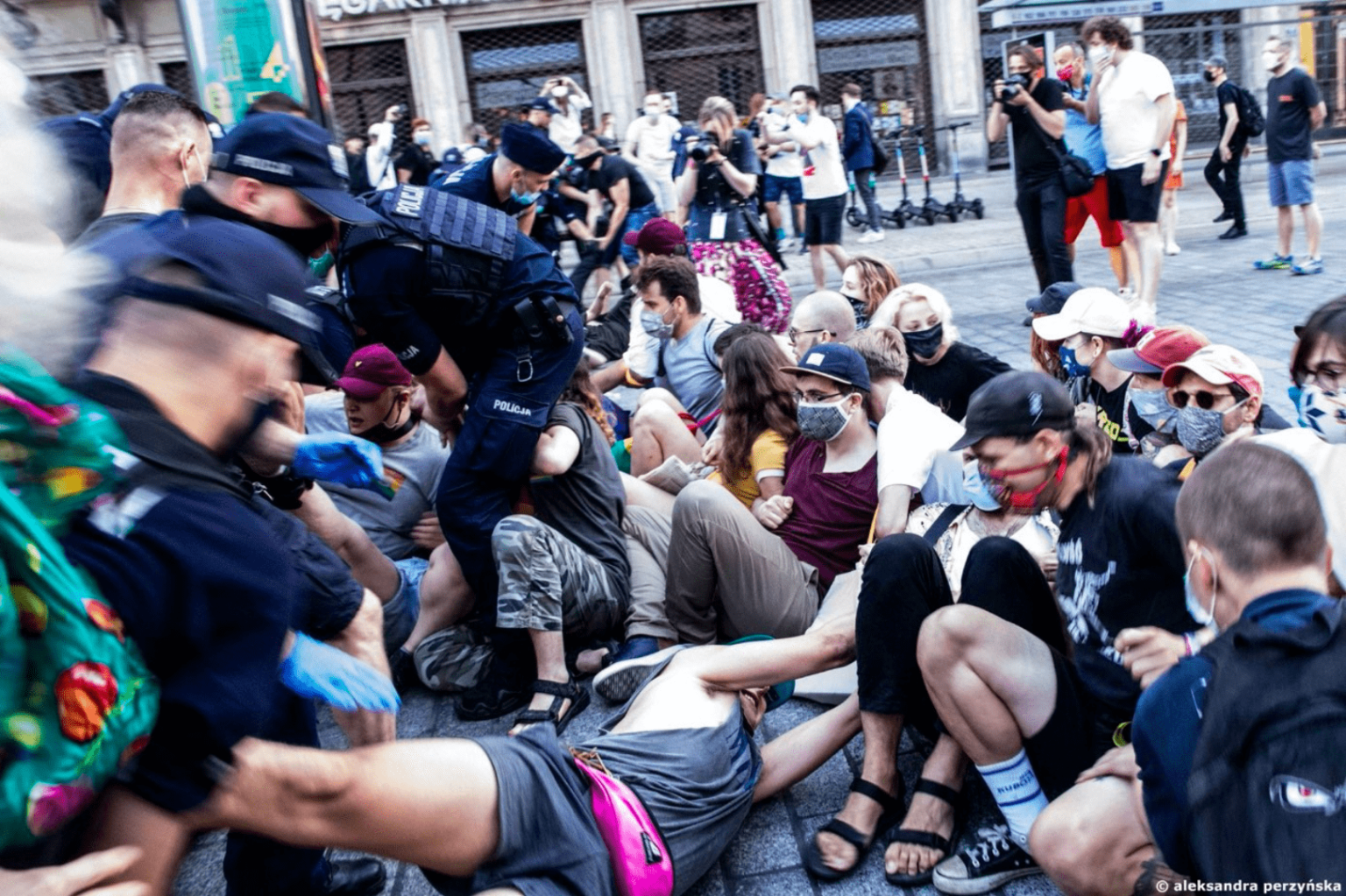
After nearly 2 years of mounting pressure, things came to a boiling point yesterday, August 7, in Warsaw. A spontaneous protest related to the “preventative detention” of an LGBTI activist, Margot Szutowicz, resulted in 48 arrests and extensive police brutality last night. More protests, and more arrests, are expected today as the repression of LGBTI people goes unabated.
The hate campaign against the LGBTI community in Poland has been going on since October 2018 and resulted in LGBTI people becoming a dominant issue during this year’s presidential elections, in which President Duda degraded and scapegoated the LGBTI community on his way to election victory. This included claims that LGBT “are not people, but ideology” and other attempts at dehumanisation and incitement of hate and fear. Over 100 local governments adopted resolutions calling their territories “LGBT-free zones”. Trucks with homophobic banners and audio claiming a link between homosexuality and pedophilia begun driving in public spaces, in some cases stopped and blocked by LGBT activists and allied citizens outraged by the sharing of hateful messages. In one case an altercation ensued and one of the vehicles was damaged. This was followed by repeated covert arrests of LGBT activists by plain clothes police officers in unmarked cars, which creates a climate of fear and state harassment.
Just a few days ago, an action of decorating monuments with rainbow flags and face masks was organised, which was followed by another series of covert arrests. One of the persons arrested, Margot Szutowicz, received an order for a 2 month detention to prevent her from further action. This sparked a spontaneous solidarity demonstration, during which Margot attempted to surrender to the police officers present. Their refusal to detain her among witnesses and media, and the fact she was later detained in a different location by plainclothes officer in an unmarked car, led to further civil unrest. 48 individuals were arrested and refused access to lawyers. Margot, who is non-binary and uses female pronouns, will be detained in a men’s facility.
Björn van Roozendaal, Programmes Director at ILGA-Europe, says: “The LGBTI community is being denied the right to exist by the leading political party. LGBTI people in Poland live in a situation of constant, repressive pressure with no access to justice or State protection. In circumstances like these, where marginalised members of society are being attacked from all sides, protest and activism are inevitable, and may even be considered provoked by the government’s failure to protect their fundamental rights and disproportionate law enforcement responses. Let us not forget this is happening in an EU country where the human rights of all citizens are deeply rooted in law.”
We are calling international human rights institutions, including the European Union, the Council of Europe, and the United Nations, to raise their voices against police violence and arbitrary detention, and to demand that the rule of law be followed and fundamental rights protected for LGBTI people in Poland.
Campaign Against Homophobia (Kampania Przeciw Homofobii), an ILGA-Europe member organisation from Poland, is calling upon the state and international authorities to summon the District Prosecutor’s Office in Warsaw to revoke Margot’s pre-trial arrest warrant:
- District Prosecutor’s Office in Warsaw, sekretariat@warszawa.po.gov.pl, phone number: +48 22 217 31 20
- Zbigniew Ziobro, the Public Prosecutor General, zbigniew.ziobro@sejm.pl, phone number: +48 22 12 51 594
And upon the Polish police to immediately release those detained during yesterday’s demonstrations:
- Police Commander in Chief – gen. insp. Jaros?aw Szymczyk, kancelaria.gsp@policja.gov.pl, +48 22 25 00 112
- Minister of Internal Affairs and Administration Mariusz Kami?ski, mariusz.kaminski@sejm.pl,
+48 22 60 14 295
Updates (last updated on August 28):
- August 8-9: The ombudsperson visited all detainees.
- August 13: Margot Szutowicz had access to a lawyer.
- August 15: Police intervene when LGBTI activists try to stop a van with homophobic slogans from driving around Warsaw. Police forcefully remove activists and create a corridor of protection for the van with their bodies.
- August 16: Anti-LGBT march in Warsaw received police protection. LGBTI activists painted their route in rainbow colours, and held a counter-demonstration.
- August 28: Margot Szutowicz released from pre-trial detention
Further information:
- ILGA-Europe prepared a summary of Poland Anti-LGBTI Hate Timeline 2018-2020.
- ILGA-Europe prepared a info leaflet on how twin towns can help advocate against the discriminatory Family Charters.
- Check out our social media here, and here.
For further comment, contact:
- Ana Muñoz Padrós, Communication and Media Officer, ILGA-Europe at ana@ilga-europe.org or +32 2 609 56 59.
- Miroslawa Makuchowska, Deputy Director at Campaign Against Homophobia, Poland:
First report from UN SOGI Expert Madrigal-Borloz published
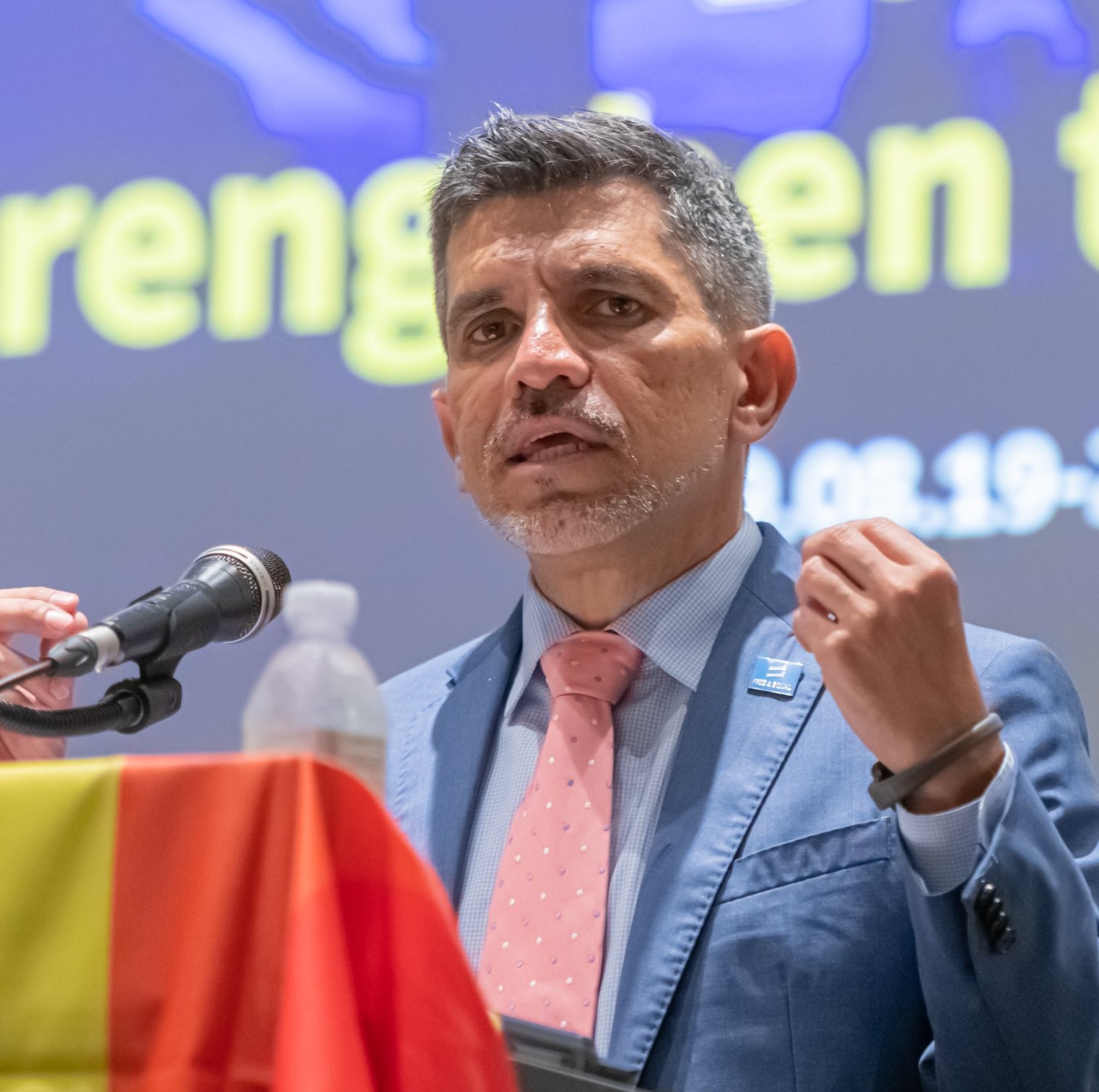
The UN Independent Expert on protection against violence and discrimination based on sexual orientation and gender identity, Victor Madrigal-Borloz, has published his first report.
The report highlights that LGBTI people are particularly vulnerable to violence, ill-treatment and discrimination, many facing it every day, at the hands of state authorities, individuals, criminal gangs, and even their own families.
Legislation criminalising same-sex acts as well as legislation limiting the freedom of expression around this topic “fuel stigma, legitimise prejudice and expose people to family and institutional violence and further human rights abuses, such as hate crimes, death threats and torture”.
Furthermore, the report highlights entrenched gender norms and societal expectations of how things should be (such as notions of what constitutes male and female, masculine and feminine, binary and non-binary, family and relationships) and the consequent will of some to punish, destroy or fix those who are seen not to fit these norms by virtue of their sexual orientation, gender identity, or gender expression.
In particular, ILGA-Europe welcome the intersectional approach this report takes, highlighting the multidimensionality of the experience of any given individual, and drawing particular attention to the experiences of trans and bisexual individuals. ILGA-Europe would, however, welcome more attention to the experiences of intersex people.
We look forward to working with Victor Madrigal-Borloz in the coming months and years to tackle the root causes of discrimination and violence against all members of the LGBTI communities.
- Read Victor Madrigal-Borloz’s full report in full here.
- Miroslawa Makuchowska, Deputy Director at Campaign Against Homophobia, Poland:
loading... - Minister of Internal Affairs and Administration Mariusz Kami?ski, mariusz.kaminski@sejm.pl,